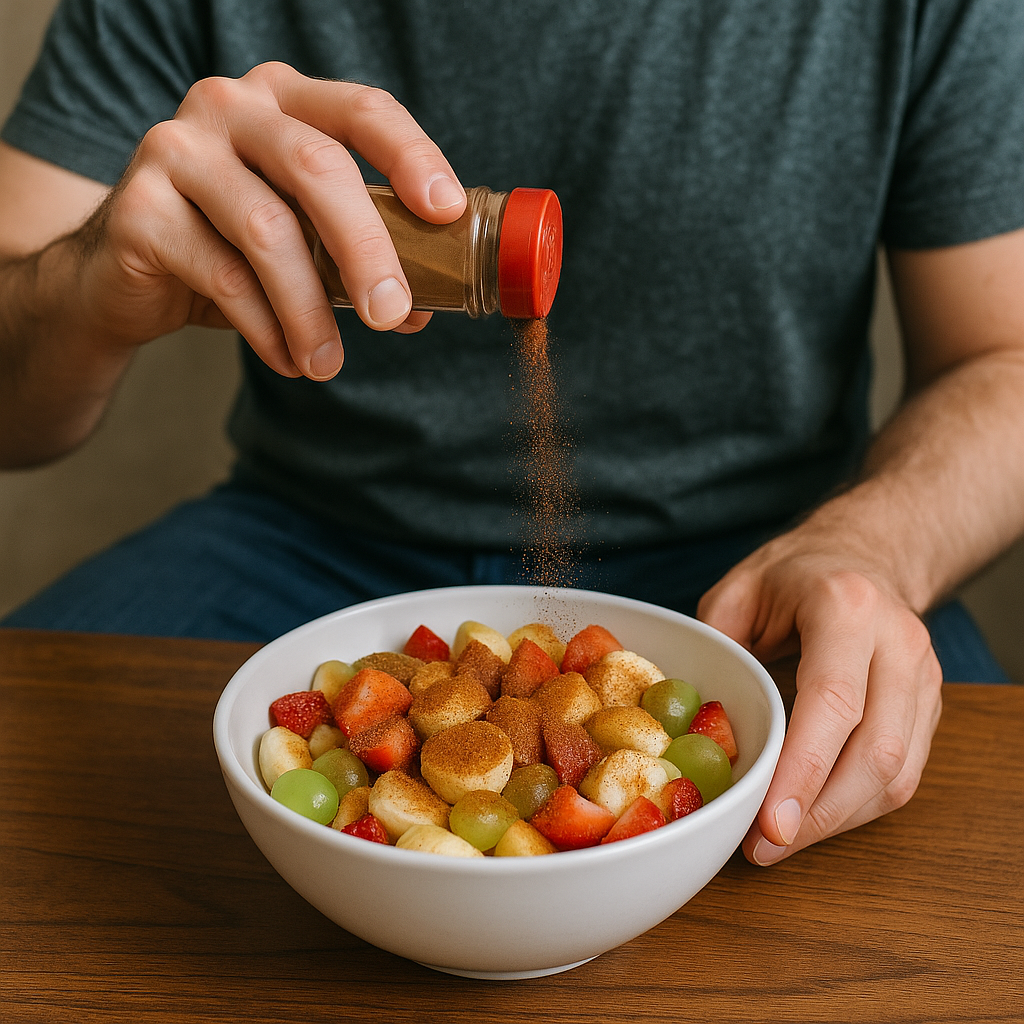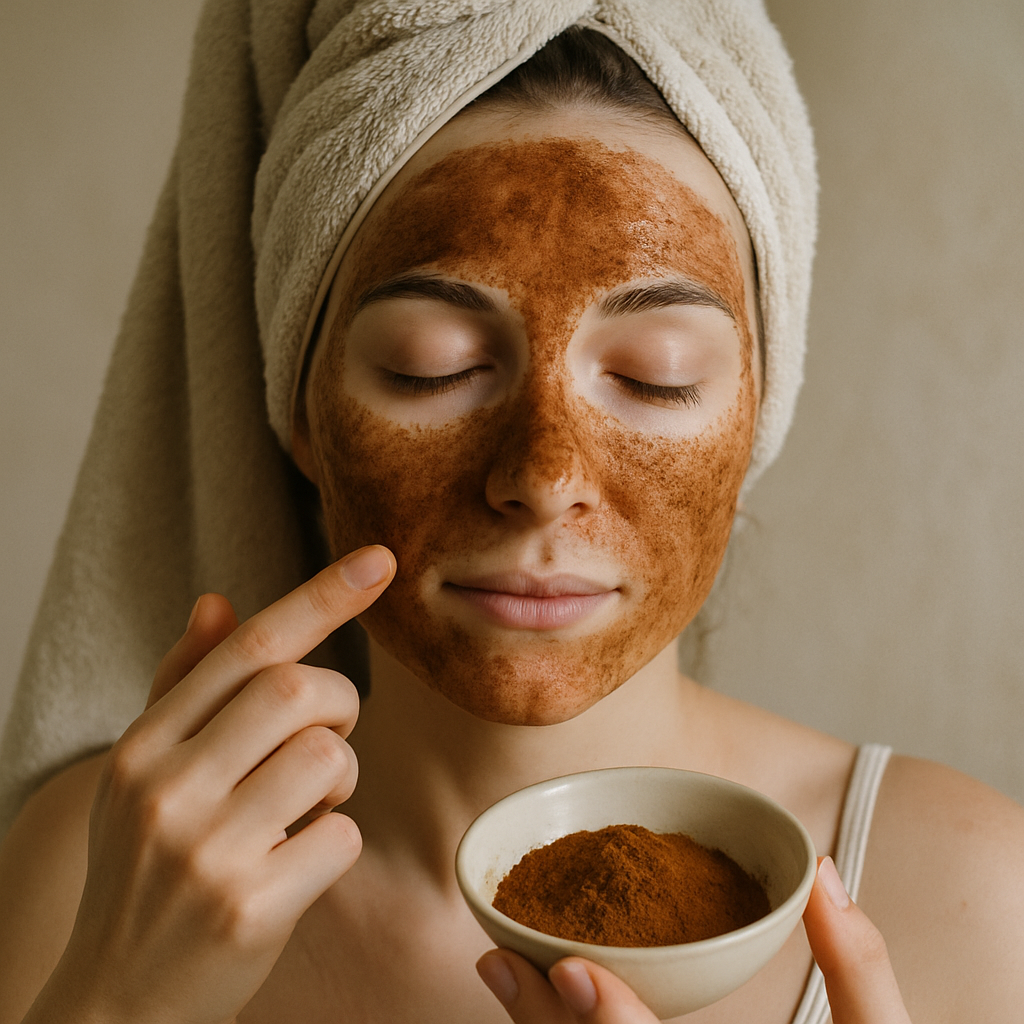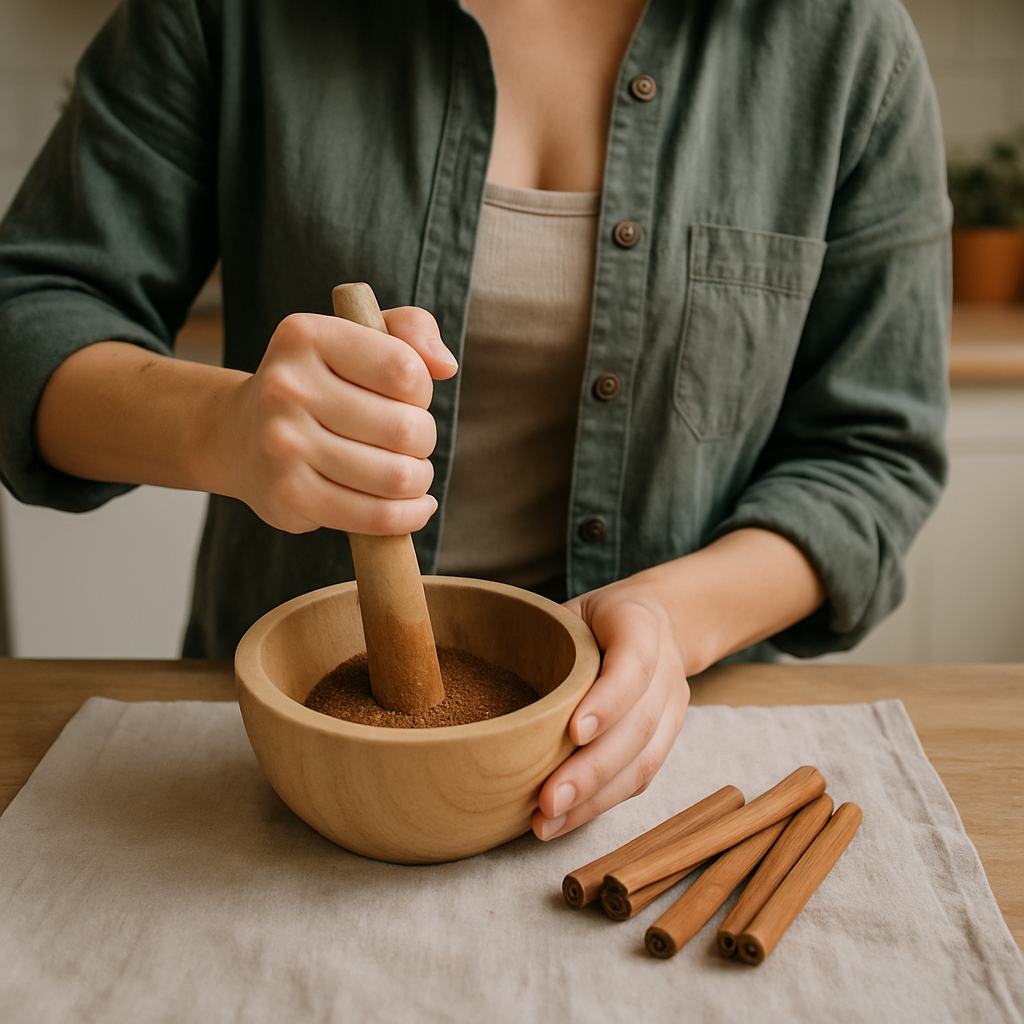Cinnamon powder. Sounds simple, right? But what is cinnamon powder, really? If you've only thought of it as that brown spice you sprinkle on toast or coffee, there's a whole world you're missing out on. From health perks to skincare miracles to ancient Ayurvedic traditions, cinnamon powder has been used for centuries—and not just in your grandma's apple pie.
In this guide, we’ll explore the cinnamon powder benefits, how it works wonders for both the inside and outside of your body, and why you might want to start keeping a jar in your kitchen and your bathroom cabinet. Oh, and we’ll also show you how to make cinnamon powder at home (hint: it’s easier than you think). So, whether you're wondering how to use cinnamon powder for beauty or just curious about cinnamon powder water benefits, you're in the right place.
Let’s spice things up—literally.
What Is Cinnamon Powder and Where Does It Come From?
Cinnamon powder is made by grinding the inner bark of cinnamon trees, primarily Cinnamomum verum (also called "true cinnamon") and Cinnamomum cassia. The result? A warm, sweet-smelling, fine brown powder packed with flavor and health benefits.
Often used in both sweet and savory dishes, cinnamon is more than just a pantry staple. In Ayurvedic medicine, it’s seen as a balancing herb—warming the body, aiding digestion, and even helping with respiratory issues.
How to Make Cinnamon Powder at Home Naturally
If you're looking for the freshest, most potent version of cinnamon, making it at home is the way to go. Here's how to make cinnamon powder at home:
-
Get good quality cinnamon sticks – preferably Ceylon cinnamon (it’s milder and considered “true” cinnamon).
-
Let them air-dry if they feel moist.
-
Break them into smaller pieces and grind using a spice grinder or blender.
-
Sift the powder to remove large bits, and store in an airtight jar.
Done! That’s how to make cinnamon powder that’s fresher than store-bought, with no additives.

Cinnamon Powder Benefits for Health and Wellness
Cinnamon isn’t just tasty—it’s medicinal. Used for centuries in traditional medicine, it’s now being backed by science too.
General Benefits of Cinnamon Powder for Digestion and Immunity
Let’s start with the basics. Cinnamon helps stimulate enzymes in the digestive tract, making it easier for your body to break down food. It also has antibacterial properties, which means it may help fight off infections and improve immunity.
Some studies suggest that regular consumption can help with blood sugar control. So, yeah—the benefits of cinnamon powder go beyond flavor.
Cinnamon Powder Water Benefits and Daily Use Tips
Drinking cinnamon-infused water (especially in the morning) has become quite the trend. And for good reason.
Cinnamon powder water benefits include improved metabolism, reduced inflammation, and better digestion. To make it, stir half a teaspoon of cinnamon powder into warm water. Let it steep for a few minutes before drinking.
Just don’t overdo it—too much cinnamon (especially cassia) can be harmful. Stick to recommended amounts. It’s tempting to go all-in when you start seeing results, but more isn’t always better.
How to Use Cinnamon Powder for Weight Loss Goals
So, how to use cinnamon powder for weight loss? The idea is that cinnamon helps regulate blood sugar levels and reduces cravings. It may also boost metabolism slightly, giving you a gentle nudge in the right direction.
Try adding a pinch to your morning smoothie or oats. Or make that warm cinnamon water we just talked about. Some even mix it with honey and lemon (though the taste is, well, acquired).
Is it a magic pill? No. But when combined with healthy eating and movement, it can support your journey.
Cinnamon Powder for Skin Care and Beauty
Okay, now let’s talk about your skin. Turns out, this humble spice is hiding some serious glow-up potential. The benefits of cinnamon powder aren’t just internal—it's gaining attention as a skincare hero too.
Rich in antioxidants and antimicrobial properties, cinnamon can help fight acne-causing bacteria, improve blood circulation, and promote that lit-from-within skin glow we all secretly want.
Cinnamon Powder Benefits for Skin Glow and Repair
Let’s be real: We all want healthy, glowing skin. And cinnamon might just be your skin’s new BFF.
One of the key cinnamon powder benefits for skin is increased circulation. When applied topically (with care—more on that soon), it brings blood to the surface of the skin, which may help with cell regeneration and repair. That means fresher-looking skin and potentially fewer dark spots or dull patches.
Plus, thanks to its antimicrobial effects, cinnamon powder may help combat breakouts and reduce redness or swelling around pimples. It’s kind of like a natural toner-meets-spot-treatment hybrid.
Can We Apply Cinnamon Powder on Face Directly?
Hold up—before you go sprinkling it all over your cheeks: Can we apply cinnamon powder on face directly? Technically, yes… but with caution.
Cinnamon is strong stuff. Applying it directly to your skin without diluting it (like in water, honey, or yogurt) can cause irritation or a burning sensation. It’s not the spice to slather on without a plan.
If you're using it for the first time, always patch test a small spot first—like on your wrist or behind the ear. If there’s no burning, redness, or itching within 24 hours, you’re probably good to go. But if you feel a strong tingle or sting? Wash it off immediately.
How to Use Cinnamon Powder for Skin Whitening Safely
Now let’s get into one of the more popular uses: how to use cinnamon powder for skin whitening.
First things first—skin “whitening” here doesn’t mean bleaching your natural skin tone. Instead, we’re talking about brightening dull areas, evening out hyperpigmentation, and reducing acne scars or dark spots.
Try this simple DIY mask:
Mix and apply for 10 minutes max, then rinse with warm water. Don’t leave it on longer—it’s powerful. This combo may help clear clogged pores and fade dark spots over time.
Use it 1–2 times a week at most. Your skin needs rest, too.

Cinnamon Powder for Face and Daily Beauty Rituals
Adding cinnamon to your beauty routine doesn’t have to be a once-in-a-while mask. You can easily incorporate it into your weekly skincare habits.
Cinnamon Powder for Face Masks and Pimples
Struggling with pimples or pesky breakouts? A targeted cinnamon spot treatment could help.
Here’s one quick recipe:
-
Mix a pinch of cinnamon powder with a drop of tea tree oil and a dab of aloe vera gel.
-
Apply only on active pimples—not your whole face.
-
Leave on for 15–20 minutes and rinse.
Boom. Natural, potent, and way cheaper than store-bought pimple creams.
Want to keep it even simpler? Mix cinnamon with plain yogurt for a gentle exfoliating face mask. You’ll feel a tingle—that’s normal—but if it burns, rinse it off right away.

Cinnamon Powder Uses in Ayurveda and Everyday Life
From ancient wellness traditions to your modern kitchen, cinnamon has always had a seat at the table—literally and metaphorically. In Ayurveda, it’s considered a powerful “heat” ingredient, helping to balance the body’s internal systems and clear toxins.
Culinary and Herbal Uses of Cinnamon Powder
So let’s talk food.
Uses of cinnamon powder in the kitchen go way beyond cinnamon rolls (though hey, we love those too). In Ayurveda, cinnamon is often added to meals to enhance digestion, warm the body, and support energy levels.
Try these ideas:
-
Sprinkle on oatmeal or smoothies
-
Add to curries and stews for warmth and depth
-
Mix into pancake or muffin batters
-
Combine with black pepper and honey for a soothing cough remedy
It’s also used as a digestive aid—some people even chew a mix of cinnamon powder and cardamom after meals to avoid bloating or gas. Bit odd sounding, but surprisingly effective.
How to Use Cinnamon Powder in Teas, Tonics, and Pastes
There’s something about a warm drink with cinnamon that just feels good.
One of the most common wellness recipes in Ayurveda is cinnamon tea. Here’s a simple method:
Let it steep, then sip slowly. Great for mornings or after heavy meals.
You can also make pastes for skin care or minor wound healing. Mix cinnamon powder with honey and apply it topically (again, do a patch test first). It's sticky, yes, but traditional Ayurvedic remedies swear by it.
Conclusion
So, what did we learn? Besides the fact that cinnamon powder smells like happiness and tastes like memories, it’s a pretty powerful thing to have in your life.
From boosting digestion to glowing up your skin, from Ayurvedic rituals to your next cup of tea—cinnamon powder is more than a spice. It’s a tool. A tradition. A natural remedy hiding in plain sight.
Remember the key tips: Use it mindfully, start small (especially on your skin), and get creative. Whether you’re drinking it, eating it, or slathering it on your face (carefully), there’s a place for cinnamon in your self-care routine.
Try it this week. You might be surprised how such a small thing makes a big difference.
And if you found this helpful, share it with someone who’s been looking for natural ways to level up their health or skincare game. Don’t keep the spice secrets to yourself 😉
FAQs
Is cinnamon powder good for weight loss?
Yes, cinnamon powder may support weight loss by regulating blood sugar levels and reducing cravings. While it's not a miracle cure, adding it to warm water or meals can help support healthy habits.
What are the best uses of cinnamon powder in Ayurveda?
In Ayurveda, cinnamon is used to stimulate digestion, warm the body, and remove toxins. It’s often added to teas, meals, and herbal pastes for its balancing properties.
Can cinnamon powder be mixed with water and consumed?
Absolutely. Cinnamon water is a popular daily tonic. Just mix a small amount (about 1/2 tsp) into warm water. Drink in the morning or before meals to support digestion and metabolism.
What is the safest way to apply cinnamon powder on sensitive skin?
Always dilute it. Mix with honey, yogurt, or aloe vera. Never apply dry powder directly to your face, especially if your skin is sensitive. Do a patch test first to be safe.





